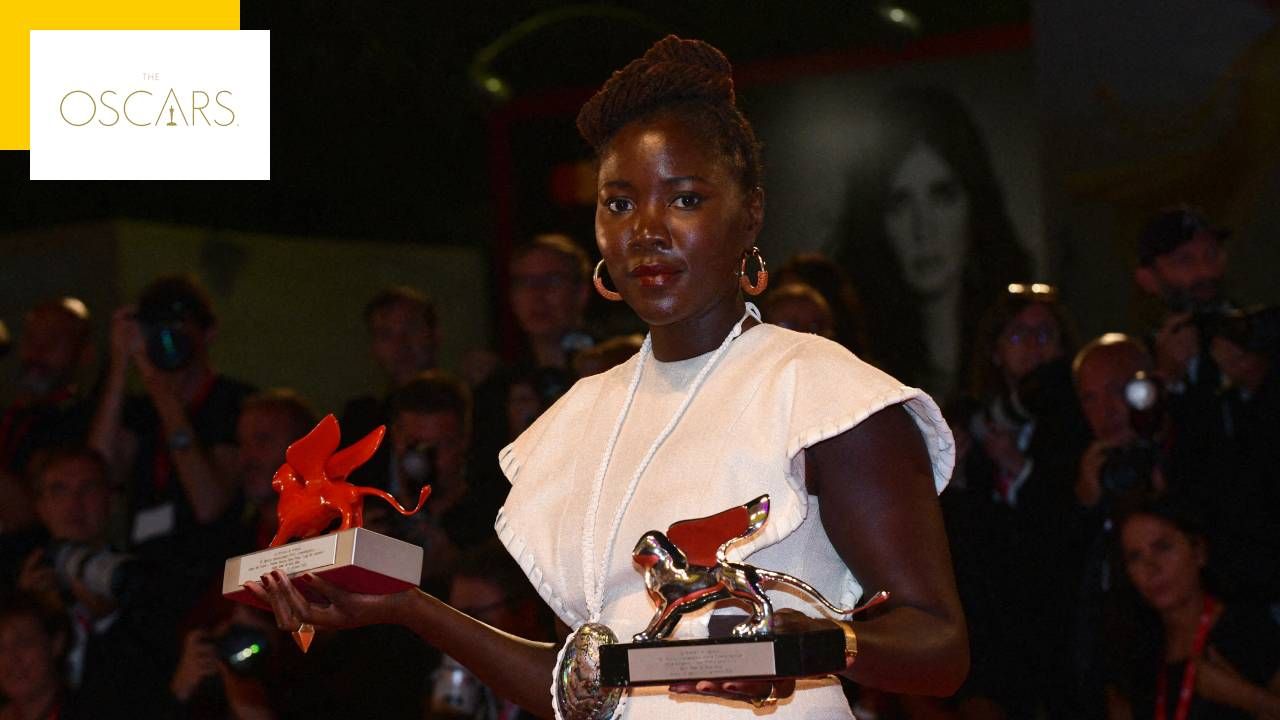Alice Diop was recently selected to represent France at the Oscars for Saint-Omer. His film, which hits theaters on November 23, received rave reviews at the Venice Film Festival, as did his viral and loud speech.
This Friday, September 23, filmmaker Alice Diop was chosen to represent France at the Oscars with her first feature film, Saint Omer.
Two weeks ago, the screenwriter and director received two awards for the same film at the prestigious Venice Film Festival: the Silver Lion, the Grand Jury Prize, and the Future Lion for Best First Film.
In this regard, the filmmaker gave a very strong speech and shared a lot on social networks. underlines the symbolism of receiving these awards from a jury chaired by actress Julianne Moore, and therefore “Transfer story, sorority story, transfer story, so feminine in this movieAlice Diop then invoked the words of an author who means a lot to her, Audre Lorde.
“It’s very strange, because I’m at a loss for words… When I was shooting St. Omer, there’s a book that was my bedside book that I read every night, which gave me strength. It’s a book by poet Audre Lorde called Sister Outsider. In Sister Outsider, she writes about black women: “Our silence will not protect us“. I want to say this evening: “We will not be silent anymore”
We spoke to the director at the FNCF Publishers Congress the day before the Oscars were announced. We wanted to get back to him with the response that speech had and the significance of these two prizes for him as a filmmaker. Check out our video interview above and the full interview below.
“It’s so special, so unexpected. If I had these prices, it was not even a possible projection. It is even more amazing and even more moving. But beyond the prices, what I remember is the breathtaking and absolutely overwhelming welcome. The screening day in Venice was one of the most powerful days of my life. Especially the feedback from women who told me their personal experiences, the very direct echoes between their personal history and this story, how they went through it, how it allowed them to question themselves about motherhood…
It really convinced me of what I’ve always believed, how universal this story is. The central question of the film is really the relationship that everyone has with motherhood. Finally, that we are not limited to our neutrality, but can also ask questions that speak to everyone and that this is recognized, confirmed, observed. It’s something that makes me happy.”
“My whole life is political. What I stand for, what I am, what I work for, what I do. Everything is political. So this sentence by Audre Lorde (“Our silence will not protect us,” ed.) is as important as the film and my presence, the body of a black woman on this stage, in front of this gathering. It’s as political as anything that’s happened to me in what I’ve been doing for 20 years. In the euphoria and panic of getting back on stage and thinking about what I could say, this sentence from Audre Lorde came back to me.“, develops Alice Diop on our microphone.
This sentence tells an entire personal journey, an intimate journey, a life story that sums up why I do this.
“ There is a book that helped me a lot to understand the necessity I was creating in cinema. This sentence tells an entire personal journey, an intimate journey, a life story that sums up why I do this. I think of all the other black women who are teetering on the edge that I wish this award would shine some light on. (…) Now we are going to talk, now we are going to stage our stories. But if we are ready to break the silence, are you ready to welcome? All this is also in this statement.”
During this interview with Alice Diop, we also asked her about presenting and updating stories, echoing Rebecca Zlotowski’s remarks. during the Cannes Film Festival (“Put women and minorities in front of and behind the camera, it’s also an economic emergency, because when there are no performances, people disappear from the rooms”).
“There’s a world between Black Panther and St. OmerHe tells us about the issue of representation. But the real question is: What are we offering people? How we try to best reflect the state of society. I continue to go to the cinema and make films for the theater that are formally very demanding from my location. That is, we cannot summarize the fact of a black woman and that black people are naturally attracted to a film like Saint Omer. I want to, but I speak from my place.
There is a need for a narrative update, a need to revise the collective history.
I completely agree with what Rebecca Zlotowski is establishing. But I think the only answer lies in faith, in the invention of new forms, and indeed in news. It’s almost a renewal for me, even as a filmmaker. Beyond the audience are the stories that I miss personally, even for the growth of my own cinema. Of course, there are lost stories. Of course, there are voices we don’t hear. There is a need for a narrative renewal, a need to revisit a collective history, in a place that has been rarely seen before.”
Saint Omer will hit theaters on November 23. Before that, Alice Diop will travel with the film to festivals, especially the Festival 2 Cinéma de Valenciennes, which starts today.
Selected at several festivals
Saint Omer will also be in competition at the Bordeaux festival, FIFIB, in October.
Saint Omer is inspired by a true story. The film tells the story of Rama, a young writer who attends the trial of Lawrence Coley at the Assize Court of Saint-Omer. The latter is accused of abandoning his fifteen-month-old daughter at high tide off the coast of northern France. But during the trial, the word of the accused, hearing the testimony shakes Rama’s conviction and casts doubt on our judgment.
Source: allocine
Emily Jhon is a product and service reviewer at Gossipify, known for her honest evaluations and thorough analysis. With a background in marketing and consumer research, she offers valuable insights to readers. She has been writing for Gossipify for several years and has a degree in Marketing and Consumer Research from the University of Oxford.






